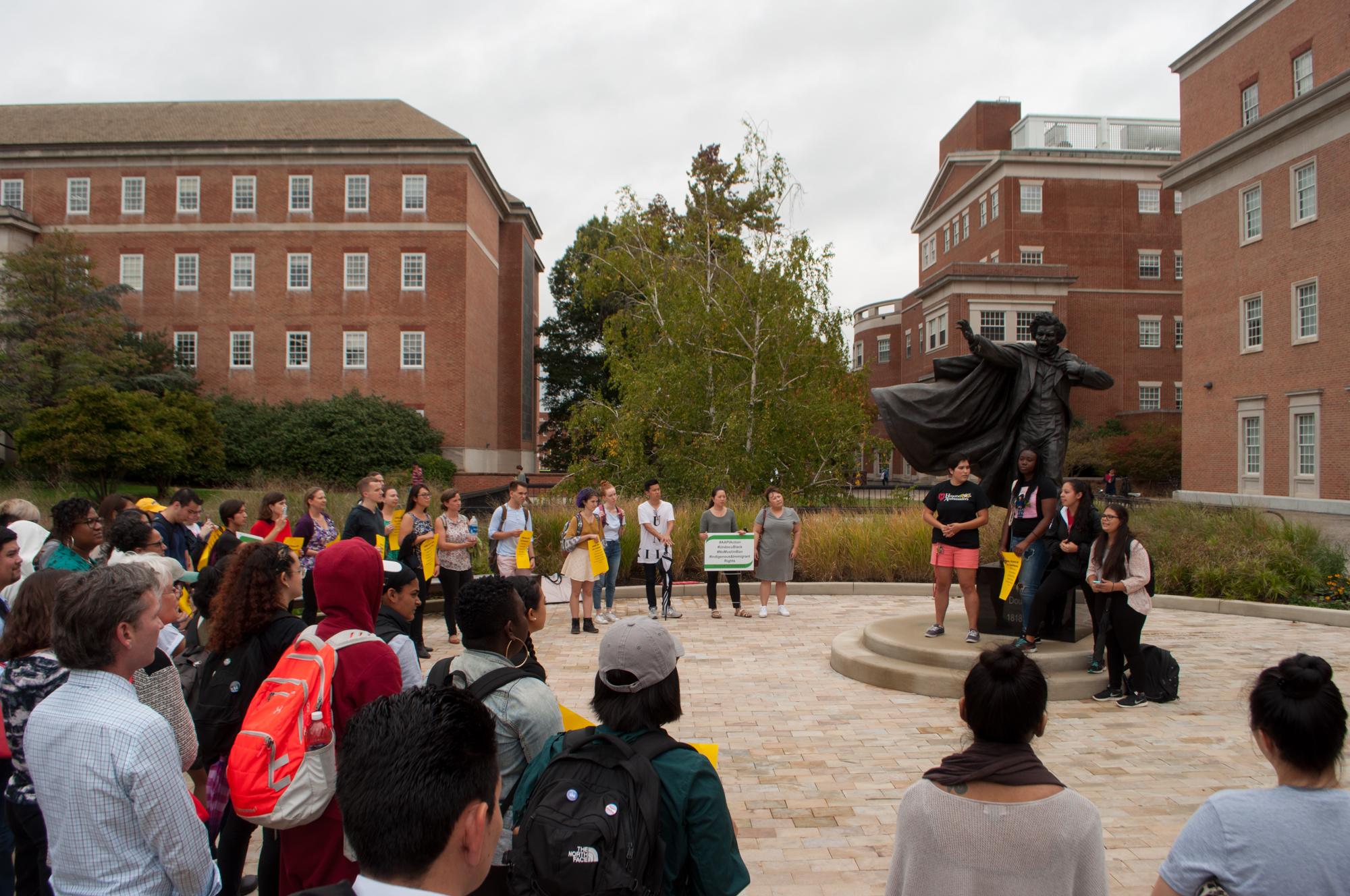Views expressed in opinion columns are the author’s own.
In last week’s heartbreaking Diamondback profile of a DACA recipient at the University of Maryland, one detail was especially painful. Valeria A., the subject of the story, described precautions she takes to avoid legal ramifications, saying, “One of the biggest things is just making sure that you’re doing everything right. Any wrong thing that can happen to you — from plagiarism to getting a speeding ticket or anything like that — could just taint your record, and who knows what the next policy may be?”
[Read more: ‘Undocumented and Unafraid’]
This anecdote reveals an immigration system in which the smallest human failing can tear a life apart. To avoid being taken from one’s home or workplace and sent to an unfamiliar country, Deferred Action for Childhood Arrivals recipients have to be the picture of perfection — with a GED in hand and a pristine criminal record to boot. Valeria’s story shows how this standard can be paralyzing.
Well-meaning liberals deserve a lot of blame for this immigration regime. The DREAM Act — which would give undocumented young people legal status in exchange for college attendance or military service — is a Democratic Party effort to protect the most promising of America’s young immigrants.
And in university President Wallace Loh and Rep. Steny Hoyer’s (D-Md.) recent Diamondback column, they called DREAMers “talented, productive” and “hardworking,” repeatedly emphasizing their contribution to our economy. The focus is on extraordinary undocumented people and how their gifts redound to our benefit.
[Read more: President Loh and Rep. Hoyer: Congress must pass the DREAM Act to protect Maryland DREAMers]
These arguments assume anti-immigration activists sincerely worry undocumented folks will harm our economy and boost crime. But presumably, liberals think, these activists will jump at the chance to welcome immigrants who clearly pose no economic or safety threat. And, to be sure, some pro-immigrant Republicans support DACA and the DREAM Act.
But a defense of DREAMers’ moral character doesn’t work on white supremacists. And President Trump — who began his business career at a company that denied leases to black people, who came to political prominence arguing the first black president wasn’t American and who launched his presidential campaign calling Mexicans rapists and criminals — is a white supremacist.
White supremacists, who believe whiteness correlates with intellectual and moral superiority, don’t want to hear about thriving non-white people. That belies their central ideological claim. So when Barack Obama, Loh, Hoyer and their ilk concentrate rhetorical energy on the most talented and hardworking immigrants, they’re setting themselves up for backlash.
Post-Reconstruction South Carolina, in Ta-Nehisi Coates’ excellent telling, lends insight into such supremacist backlash. After the Civil War, former slaves gained considerable political power in the state and used it wisely, marshaling economic resources, providing public education and building up infrastructure.
It wouldn’t be for long. In 1895, white South Carolinians enacted property requirements and literary tests for prospective voters, effectively cutting black people out of the franchise. In the end, intellectual and civil rights leader W.E.B. DuBois noted, “If there was one thing that South Carolina feared more than bad Negro government, it was good Negro government.”
White supremacists like Trump fear most that white supremacy is fiction. In recent years, Democrats have tried to convince a party controlled by white supremacists that some immigrants are, in fact, talented and productive. Yet, Trump’s plan to rescind DACA proves the liberal strategy is not only ineffective but counterproductive.
The reality is every human life is rife with failings and mistakes. We’re all fallen — and our politics must determine how to respond when our fellow citizens inevitably fail. A just country extends its compassion to immigrants, even if some were once arrested for drug possession or didn’t graduate from high school. A just country treats everyone within its borders with dignity, even if they aren’t unusually brilliant, rule-abiding or innovative.
Trump’s presidency has brought both pain and revelation. Progressives have learned they no longer need subject themselves to imagined pragmatic constraints — in fact, our recent pragmatism has been a political crutch. So let’s reject a weaksauce immigration policy that turns human beings into mere economic engines, and recognize that America’s wealth carries an obligation to those fleeing economic and political injustice around the globe.
Max Foley-Keene, opinion editor, is a sophomore government and politics major. He can be reached at opinionumdbk@gmail.com.



